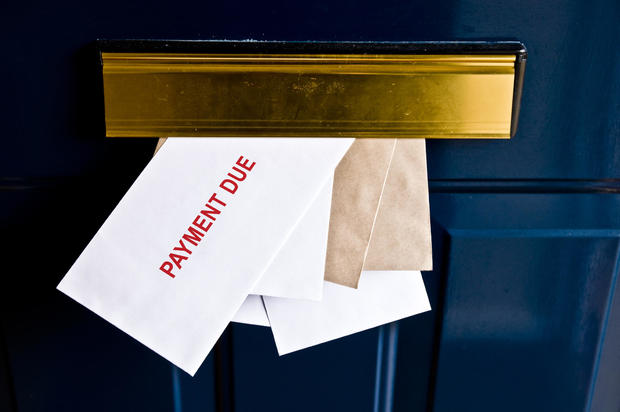Debt relief dos and don'ts to know
Dealing with debt can be a challenging and overwhelming experience — no matter how much you owe. Whether it's credit card balances, student loans or medical bills, the burden of debt can have a significant impact on your financial and mental well-being.
But while being in serious debt can be stressful and overwhelming, the reality is that many people are struggling with it. Not only has the total amount of credit card debt been growing nationwide, but the other economic hurdles we've faced over the last few years — like inflation, rising interest rates and increasing consumer goods prices — have also added to many people's debt-related issues.
That said, if you're struggling under the weight of your debt, there are strategies you can use to try and navigate a way out — whether that's on your own or with the guidance of a debt relief professional. And, in many cases, finding a way out starts with understanding the dos and don'ts of debt relief.
Ready to get serious about your debt? Explore your top debt relief options here.
Debt relief dos to know
If you're dealing with overwhelming debt and want some relief, making the following moves can help.
Do create a realistic budget
One of the fundamental steps towards debt relief is establishing a realistic budget. Take a close look at your monthly income and expenses, identifying areas where you can cut back. Allocating a portion of your income to debt repayment ensures a systematic approach to reducing your overall debt burden.
Do prioritize high-interest debt
If you have multiple debts, prioritize paying off the debts with the highest interest rates. High-interest debt can accumulate quickly, making it harder to get ahead. Tackling these debts first will save you money in the long run and expedite the overall debt repayment process.
Find out how debt relief could benefit you and your finances here.
Do explore debt consolidation
Debt consolidation involves combining multiple debts into a single, more manageable payment. This can simplify your financial life and, in some cases, reduce your overall interest rate. However, it's crucial to understand the terms and conditions of any consolidation loan and ensure that it genuinely improves your financial situation.
Do negotiate with creditors
Don't hesitate to reach out to your creditors to discuss your situation. Many creditors are willing to negotiate, offering more favorable terms or temporary relief options. Exploring this avenue can be particularly helpful during challenging times, such as job loss or unexpected medical expenses.
Do seek professional debt relief help
If managing your debt becomes overwhelming, consider seeking professional advice or assistance. For example, financial counselors or debt relief agencies can provide guidance tailored to your specific situation, which can be invaluable if you're unable to navigate the debt repayment landscape alone. They can help you explore options like debt management plans or settlements, ensuring you make informed decisions aligned with your financial goals.
Debt relief don'ts to know
Make sure to avoid the following if you want to get rid of your debt:
Don't ignore the problem
One of the biggest mistakes people make when dealing with debt is ignoring the issue. Ignoring overdue bills or avoiding communication with creditors can lead to more significant financial problems, including damaged credit scores and legal action. Rather than ignoring it, try to face the problem head-on and address it proactively.
Don't rely solely on minimum payments
Making only the minimum payments on your debts might keep creditors at bay, but it won't make a significant dent in your overall balance. Interest accumulates, and it could take years to pay off the debt at that rate. Strive to pay more than the minimum whenever possible.
Don't take on more debt
While it may be tempting to use credit cards or loans to cover immediate expenses, this approach can easily exacerbate your debt problems. Instead of using that approach, try to avoid taking on more debt until you have a solid repayment plan in place and are confident in your ability to manage your finances responsibly.
Don't fall for debt relief scams
Scams targeting individuals who are in debt are unfortunately common, so be careful not to fall for one as you look for resolutions to your financial situation. While your goal may be to get out of debt quickly, it can take time to become completely debt-free and you should be wary of offers that promise quick and easy debt relief solutions. Be sure to research any debt relief service thoroughly and be cautious if they demand upfront fees or make unrealistic promises.
Don't liquidate retirement accounts
It might be tempting to dip into your retirement savings to pay off your debts, but this can have serious long-term consequences. Not only could you face penalties and taxes for early withdrawal, but you're also jeopardizing your financial security in retirement. Try to explore other options before tapping into retirement funds.
Learn more about how debt relief can help you here.
The bottom line
Navigating debt relief requires a strategic and disciplined approach. By following these dos and avoiding the don'ts, you can take control of your financial situation and work toward a debt-free future. And, if you struggle to navigate the debt repayment landscape alone, seeking professional advice when needed and staying committed to your financial goals can help contribute to your success in achieving lasting debt relief.
for more features.




